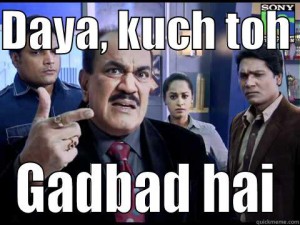 A couple of days ago, the Enforcement Directorate (ED) – the law enforcement agency in India that deals with economic offences, attached the assets of the Indian Performing Rights Society (IPRS) on allegations of money laundering. This action comes on the basis of allegations that the money that was collected as royalties for musicians and artists was not being distributed to them and that there was misappropriation of this money. Generally, an attachment of assets implies that the ED has at least a reason to believe that the proceeds that have been so attached are the proceeds of some crime. Considering that these reasons have to be recorded in writing (as per S.5 of the Prevention of Money Laundering Act, 2002) it will definitely have to satisfy at least a fair threshold with regards to the existence of the crime. This is significant progress in the proceedings against IPRS as most others have been rebuffed by them on procedural or other grounds (see here for a history of these proceedings). Thankfully the Supreme Court would have none of it. (Long post follows)
A couple of days ago, the Enforcement Directorate (ED) – the law enforcement agency in India that deals with economic offences, attached the assets of the Indian Performing Rights Society (IPRS) on allegations of money laundering. This action comes on the basis of allegations that the money that was collected as royalties for musicians and artists was not being distributed to them and that there was misappropriation of this money. Generally, an attachment of assets implies that the ED has at least a reason to believe that the proceeds that have been so attached are the proceeds of some crime. Considering that these reasons have to be recorded in writing (as per S.5 of the Prevention of Money Laundering Act, 2002) it will definitely have to satisfy at least a fair threshold with regards to the existence of the crime. This is significant progress in the proceedings against IPRS as most others have been rebuffed by them on procedural or other grounds (see here for a history of these proceedings). Thankfully the Supreme Court would have none of it. (Long post follows)
‘Twas about time
Notice how in the entire preceding paragraph I have not once mentioned what sort of a body the IPRS is. This is because, their very nature and operation is shrouded in mystery. Under the Copyright Act prior to its amendment in 2012, IPRS was registered as a copyright society. Copyright societies under the Indian Copyright Act are societies that are exclusively entitled to enforce the copyright of authors and to collect royalties on their behalf and in general carry out business with regards to the granting and issuance of Copyright licenses. IPRS was registered as a copyright society. However, the amendment in 2012 to the Act required a fresh registration as a copyright society which IPRS had not carried out. They now claim to be merely a “company” under the Companies Act and not a society that is capable of being regulated under the Copyright Act. This is awfully convenient for IPRS as the new amendment in 2012 brought with it additional powers for the Registrar of Copyright to enquire into the affairs of these societies including the power under the newly inserted S.33A to inquire into the tariff scheme of the Copyright Society. IPRS has taken itself out of the operation of this provision. However as Prof. Shamnad notes in his piece here, the IPRS continues to sue as a copyright society for the enforcement of rights (see here and here). Considering the exclusivity granted to copyright societies in the enforcement of rights (see the Leopold Case for a judicial discussion on this), what the IPRS is and is not, is something that needs to be determined.
This shady conduct has also carried over in the manner in which they operate as well (see a summary here). There have been dozens of complaints by various artists that the IPRS is a sham used by the recording labels to corner royalties that would otherwise be owed to these artists and are therefore misappropriating money. This has in fact lead to scores of cases and writ petitions that have been filed across the country seeking an investigation into the activities of the IPRS. In fact, Prashant Reddy in this piece for the NUJS law review on the 2012 argues that one of the melodies in the background score to the amendment might have been the extortive activities of these collection societies. Prashant also points out that they might not even be above engaging in collusive litigation. It is also curious to note that in this Times of India article the officials of the IPRS have two different stances on the distribution of royalties with one of them claiming that the money has been paid to the various artists whereas another (the CEO) stating that it has been deposited into “financial investments”.
The way forward
Considering all of this information, it is therefore not surprising that this action of the Enforcement Directorate comes at this time. The real question however is what next? How do we avoid this form of an extortion and a corruption of an industry that caters to a wide spectrum of stakeholders from the rich and powerful mainstream artists to the often unrepresented artists in folk or classical music? While we had begun asking ourselves this question quite some time ago and while the 2012 amendment addresses some fears in this regard, the difficult question is whether this is sufficient. The collective administration of royalties as a system itself perhaps needs a re-examination in India. IPRS claims (on its website here) to be the only authorised agency capable of administering licenses and collecting royalties on behalf of its members. A position that it claims it has received not by means of statutory authority but rather by means of licenses conferred under S.30 of the Copyright Act. Therefore, notice how it is an agency that performs a function under S.33(1) of the Copyright Act, i.e., the administration of licenses and the collection of royalties without being registered as such a society, despite the express prohibitions against such operation under the same section.
I believe that this manner of functioning is facilitated by two factors: first, because the Central Government initially having recognised the authority of the IPRS to function as such, now has not notified another agency to perform these functions and therefore there is a clear vacuum that IPRS can exploit; and second the lack of awareness in the music industry that such exclusivity is not the domain of IPRS owing to its non-registration, and that other societies can register themselves as copyright societies and carry out the same functions. This latter misunderstanding is perpetuated even in the documents of the Copyright Office on copyright societies here which still carries the name of the IPRS as a copyright society with the disclaimer that its registration is still pending, despite clear evidence to the fact that their registration has lapsed. This can be overcome by proactive action by the Central Government under S.33(3) in the appointment of another agency – maybe in the form of a co-operative society (the term ‘co-operative society’ is loosely used here) composed of sub-societies that can represent the various classes of artists and their interests with transparent governance norms laid out by the Government. The Government has not hesitated to create private bodies to regulate other areas, with clear cut norms to regulate their functioning, such as the creation of the NIXI to regulate the .in domain name. This proactivity should perhaps be demonstrated in collective administration of royalties as well. The alternative solution to this is to remove the S.33(1) provision which might encourage other companies to come up and enter into the business of licensing and royalty administration. This will allow competition to serve as a check to the activities of IPRS. However, the reason I would prefer the former solution with a proactive Governmental interference is because the influence of the publishing houses that pretty much run the music industry is deep seated in the IPRS, creating significant entry barriers to other potential competitors.
Maybe it would be cliché here to say that the journey of a million miles starts with a single step and that the ED has taken that step towards accountability in the system, but for hundreds of artists in the country this holds a deeper meaning and might ensure a stable livelihood for them.

